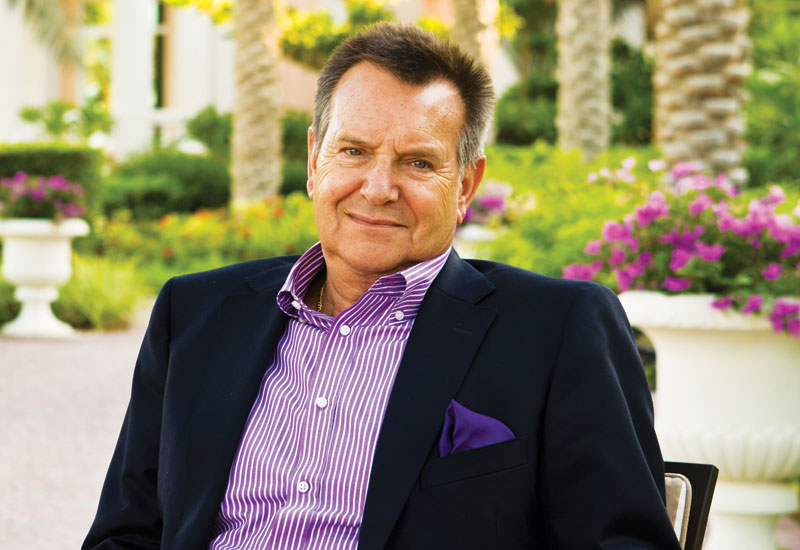Within the next two years, Swiss luxury hotel chain Kempinski will extend its presence across the Middle East, with properties expected to be operating in every country bar Kuwait and Yemen. That’s no mean feat for a European chain that, until recently, only managed hotels in the UAE, Jordan, Qatar and Egypt, with Bahrain the latest to join the portfolio a matter of months ago.
Indeed, despite the turmoil experienced by many Middle East-based hotel operators in 2011, Kempinski has “managed to stay the course”, says Middle East and Africa president Ulrich Eckhardt, and opened three hotels in the regional portfolio.
Of the decision to launch Kempinski Grand & Ixir Hotel Bahrain City Centre back in September, Eckhardt comments: “You have to open, irrespective of any situation. A hotel wants to be open, a hotel never wants to be closed. And a closed hotel is not a good sign anyway. It opened with all the ‘oomph’ that is needed but business is quite slow. Traditional markets in Bahrain have stayed away completely this year”.

| Advertisement |
Also new is the Kempinski Hotel and Residences Palm Jumeirah, joining exisiting UAE hotels Kempinski Ajman, Kempinski Mall of the Emirates and Emirates Palace in Abu Dhabi. These properties benefitted from the fallout in destinations such as Jordan and Egypt — where Kempinski also operates.
“I said we managed to stay alive and stay the course, but we had some really good moments in the UAE. In fact, the UAE is booming and so is Qatar, so some type of compensation was there,” says Eckhardt.
Avsar Koc, regional director of sales Middle East and Africa, adds that while each of the four UAE hotels has different key source markets, 2011 “has been a good year for our hotels in the UAE”. Despite an increasing focus on travellers from the new emerging markets, Koc says the traditional European source markets have bounced back and supported the chain.
In addition, he says that against the odds, the hotel in Cairo, Kempinski Nile Hotel Garden City, has fared exceptionally well, despite only opening in June 2010 and being located less than a kilometre from Tahrir Square.
“In less than a year we gained in our CompSet and RevPAR number two and then for the last three months we have gained the number one position in downtown Cairo, which is really an achievement,” says Koc.
This is underscored by the fact that the rival for the top spot is Four Seasons. Currently the two are neck and neck when it comes to rates too — at Kempinski.com, room rates start at US $215 for a room on December 2, while at Four Seasons, it’s $210.
“It’s a small hotel and just opened practically in the middle of things happening and unfolding and if you go by the bird’s flight it’s probably 500 metres from where everything happened,” adds Eckhardt, adding that for the most part, “Egypt is somewhat in the doldrums”.
Both hoteliers expect a fairly similar picture to emerge in the Middle East in 2012, despite the impending Eurozone crisis, continuing uncertainty in the Middle East, and research suggesting that finally, people might start forgoing their holidays altogether (World Travel Market 2011 Industry Report).
Eckhardt says there is no reason why the success experienced in the UAE and Qatar shouldn’t continue.
“I think it might even improve next year because some of the sub-regional difficulties may have subsided. At least this is our assumption, expectation. We go into 2012 with much greater confidence.”
Development
Joining this confidence is a bucket load of ambition, a hint of determination and a smattering of pragmatism, as Kempinski prepares to drive forward a host of openings in 2012 and 2013. These include three hotels in Saudi Arabia, one in Oman, a very advanced project in Beirut, a second property in Qatar, a second in Cairo and even a boutique hotel in Damascus, Syria, that Eckhardt says is “absolutely underway, fast track”.
Every hotel already signed is under construction, says Eckhardt, though he acknowledges that the “regular delays which happen in this part of the world” have pushed most of the openings into 2013.









 Search our database of more than 2,700 industry companies
Search our database of more than 2,700 industry companies









